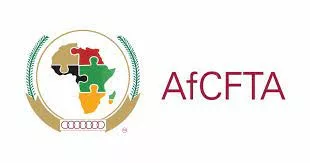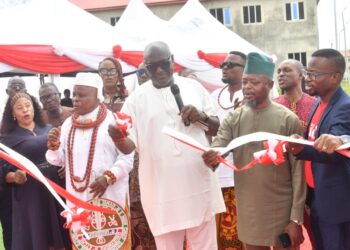Mr Dasaki Arabi, Director-General, Bureau of Public Service Reforms(BPSR), said the Bureau has developed a framework for citizens’ engagement on the African Continental Free Trade Area (AfCFTA) Agreement.
Arabi said this in his keynote address at a workshop organised by the Bureau and the Secretariat of the National Action Committee on the implementation of AfCFTA on Wednesday in Lagos.
The theme of the workshop is “Working Together for Nigeria Success under the African Continental Free Trade Area Agreement”.
Arabi said the framework would provide platforms for structured and sustainable initiations for the implementation of AfCFTA agreement.
He said the platform would help in reviewing government policies, programmes and interventions to create an enabling environment for businesses as well as cocreation between the public and private sectors.
He also said the Bureau, accordingly, conducted impact assessment on administrative bottlenecks on the ease of doing business in Nigeria.
According to him, findings from the survey and recommendations based on the assessment were forwarded to the federal government as policy briefs for implementation.
He explained that the policy brief would help to strengthen private participation in businesses in Nigeria, adding that some administrative manuals were already published.
He said these include “Understanding the Ease of Doing Business in nigeria” and “Tackling Youth Unemployment” to help translate and communicate government reform priorities.
He said the Bureau, as a central agency of the federal government, mandated to initiate, coordinate, monitor and evaluate implementation of reform programmes and policies across Ministries, Departments and Agencies (MDAs).
Arabi said the Bureau had conducted research on implementing the AfCFTA project, presented best practice models to be embarked on and which takes into cognisance findings arising.
According to him, this, through systemic administrative procedures and engagement with citizens, indicates low-level of awareness of AfCFTA amongst Nigerians and its inherent benefits towards fostering growth and economy integration.
Arabi expressed concerns of the need to unlock the development of the Small, Medium Enterprises(SMEs), emerging markets and accounting for the creation of job of over 80 per cent in Africa.
He recalled that the bureau in 2020 conducted a workshop, to address the administrative bottle-necks facing the accessibility of interventions to SMEs by the relevant government agencies.
He noted that the workshop was due to the growing need to ensure the SMEs development after the Endsars Riot and the Presidential directives to uplift millions of Nigerians out of poverty.
According to him, findings were made and policy brief submitted to the federal government for implementation.
The director-general also explained that the objectives of the new Hope Agenda by President Bola Tinubu, was founded in the philosophy to modernise and expand infrastructure.
Arabi said these efforts would also help to harness emerging sectors such as the digital economy, entertainment, culture and tourism and others towards laying a solid economic foundation.
He said conference was apt and the theme was strategic toward driving the realisation and success of the implementation efforts by various stakeholders.
“AFCTA is important, not only to Nigeria, but to the entire African continent; the implementation of the African Continental Free Trade Area (AfCFTA) in Nigeria requires a collaborative effort by relevant stakeholders to ensure that trade potentials are fully harnessed.
“To understand the complexities inherent in implementing such a transformative trade as AfCFTA, this conference is carefully designed to provide a platform to appraise the existing institutional framework towards the implementation of AFCTA, in line with the roles of the key stakeholders
“Similarly, it is imperative that we appraise the key elements, benefits, challenges, and the crucial roles of relevant public institutions in making the vision of promoting intra-African trade a reality.
“Undoubtedly, some significant gains have been recorded since the implementation of AfCFTA, especially in the areas of negotiation on protocol on trade in goods and services.
“Other gains are settlement of trade disputes under phase I, while the 247 and phase lll comprising negotiations on investment, competition policy, property rights, e-commerce, as well as matters relating to gender and youths are currently on-going.”
He enjoined all participants to contribute and make meaningful contributions toward fostering the successful implementation of AfCFTA in Nigeria.
Arabi maintained that the role of the private sector was key to the implementation of AfCFTA, saying the reason the engagement with the sector is inevitable.
Also, Mr Olusola Obadimu, Director-General, Nigerian Association of Commerce, Industry Mines and Agriculture (NACCIMA), thanked the director-general of BPSR and the organising committee for successful workshop.
Odadimu said the aim of the conference was to examine the key elements of AfCFTA, review potential benefits and challenges, discuss the role of the private sector in its implementation and proffer ways toward the implementation strategy.
The NACCIMA boss, who applauded the choice of the theme, noted that the topic was relevant in view of the current Nigerian business landscape and environment, considering the commencement of ACFTA Agreement.Obadimu stressed that AfCFTA agreement would provide a huge opportunity for Nigeria’s economic prosperity, especially by providing larger market access, free movement of labour, goods, services and capital.
He said the agreement would also motivate Nigerian SMEs to expand their businesses to other African countries and foster business growth.
According to him, the agreement will also increase SMEs’ profits and contribute substantially to the development of the manufacturing sector.
Obadimu highlighted the benefits of AfCFTA to include increasing job opportunities and the demand for labour.
He, therefore, said AfCFTA would reduce unemployment and create an opportunity for Nigerian professionals to seek employment in other African countries.
“Overall, the AfCFTA Agreement is projected to create over 13 million stable jobs to mention but a few,” he added.





